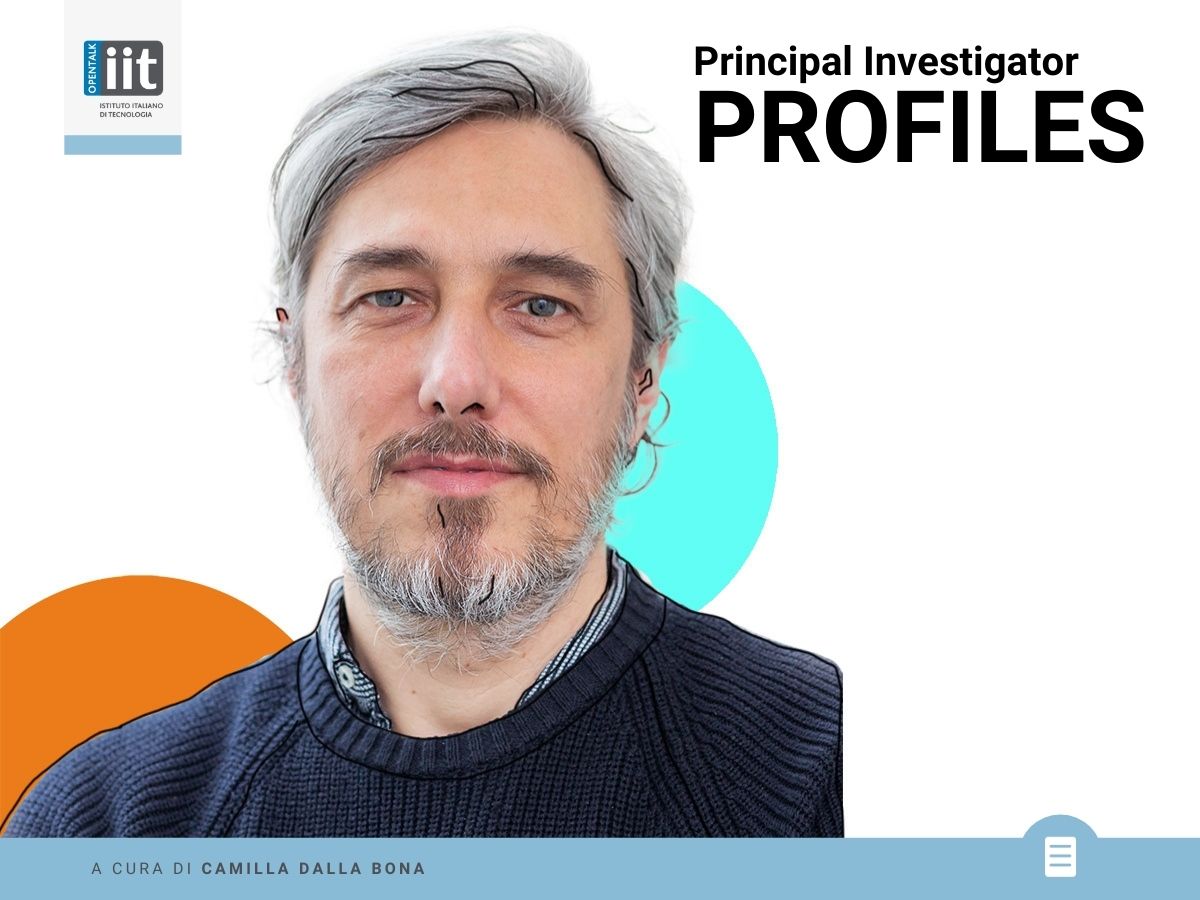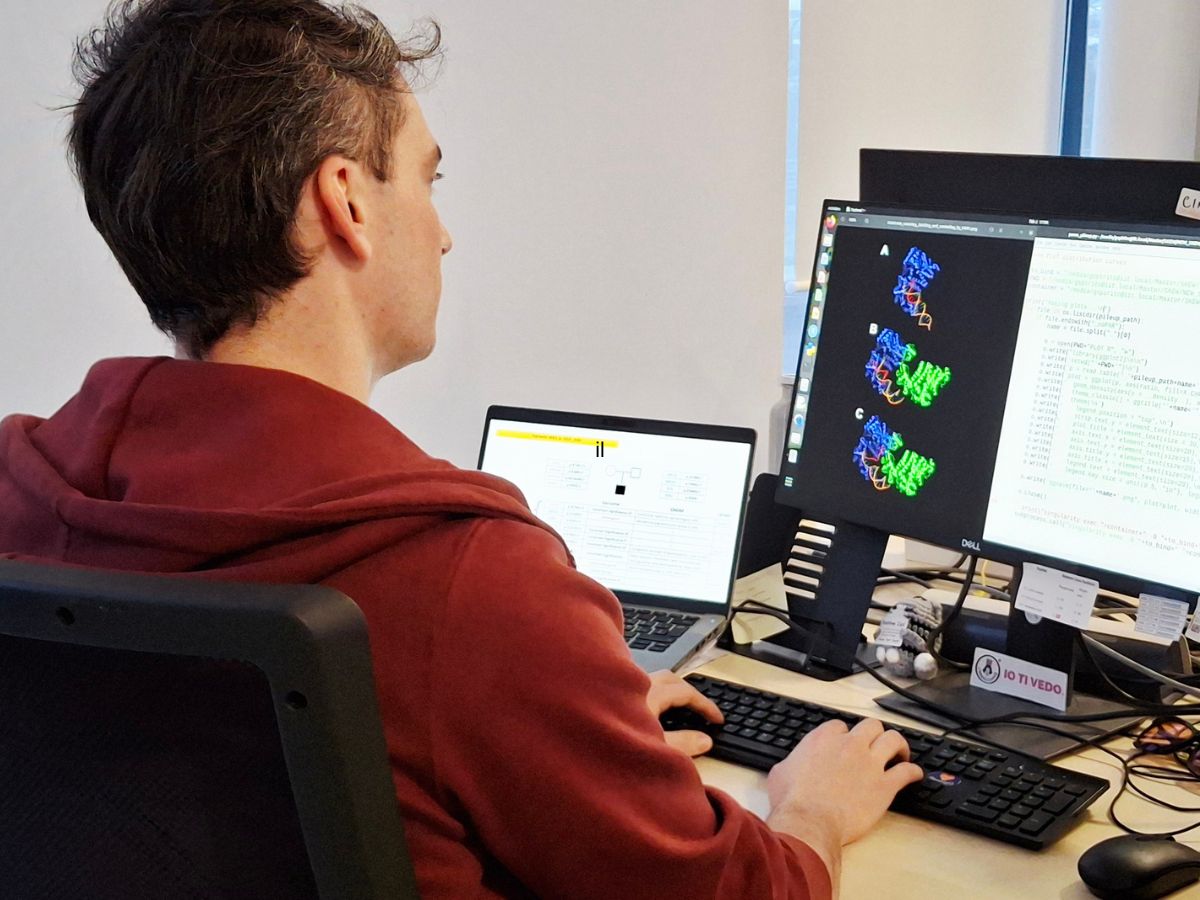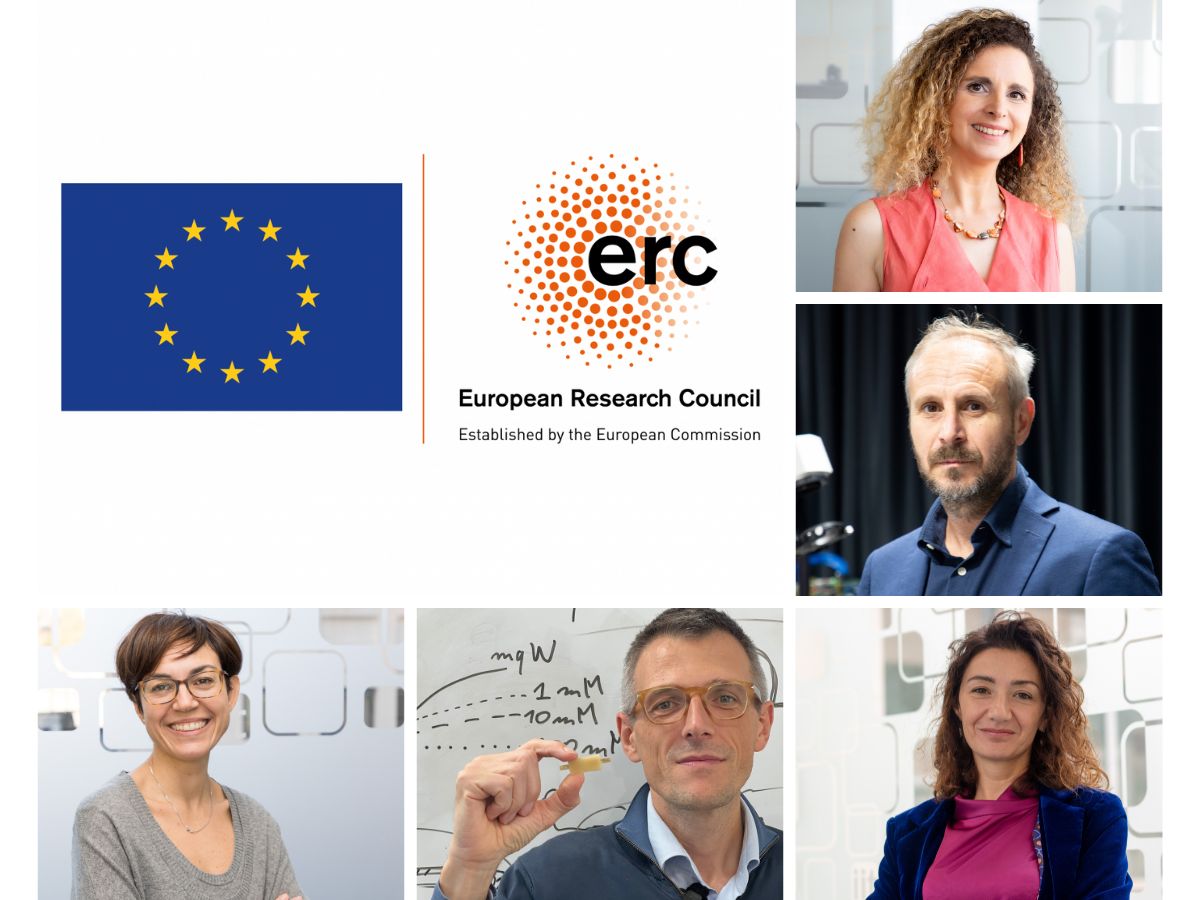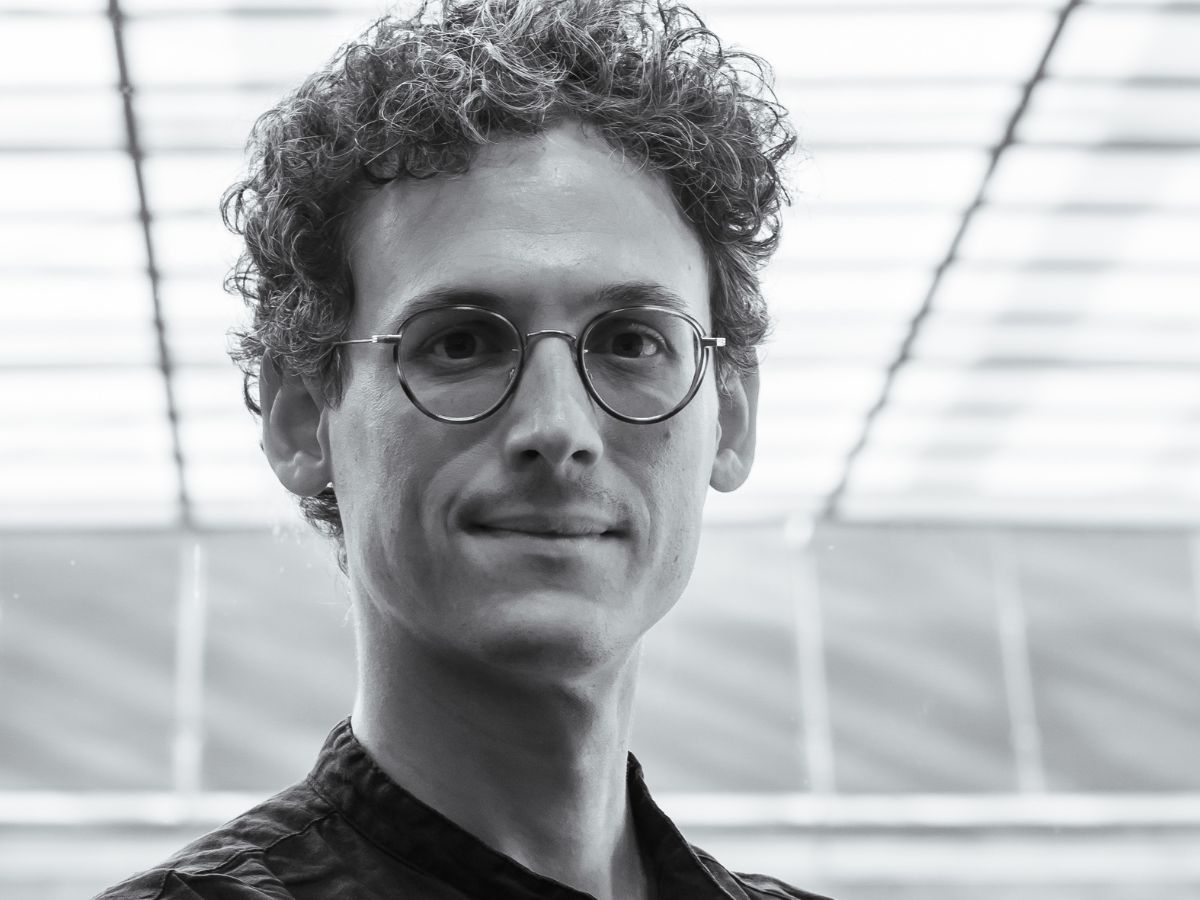Interview with Andrea Barberis, coordinator of the IIT “Synaptic Plasticity of Inhibitory Networks” research line
Name: Andrea
Surname: Barberis
Place of birth: Genoa (Italy)
Position: PI, Synaptic Plasticity of Inhibitory Networks
What is your research team working on? Studying how the synapses (the elementary CPU of the brain) define the dynamics of neuronal circuits and therefore, behaviour. I am particularly dealing with the circuits that control anxiety and fear.
Did you ever think of doing this job when you were young? No, I wanted to be a musician. However, I think that there are many parallels between scientific and artistic activities. And not only because, for example, music is mathematics but also because, in my opinion, the psychological attitude of the artist and the scientist are almost superimposable. In good and in bad…
If you had not done this work, what would you have liked to do? Be a musician or fashion designer.
That time when you wanted to give everything up and do something else: Our work is dotted with setbacks. For this reason, I think every researcher’s constitution has enormous resilience. When I have a heavy overload of work and am emotional, I dream of leaving and going to live in a forest. But, usually, these resolutions only last a few minutes.
“Publish or perish”. How much does the pressure of publication influence your day and working choices? Very much, and I think that it is only right: a publication is the main product of my work.
When did you realise that you were going in the right direction? It’s an interesting and “composite” question. I think that a researcher can not afford to have a “right direction” because it is the research itself (and the international field) which imposes continuous directional changes on us that can be painful but vital to survive in a very competitive field: no-one, in my experience, can afford a completely “linear” trajectory, particularly in modern research which changes at the speed of light. It is another thing, on the other hand, when you know that you are going in the right direction in terms of intellectual/scientific growth. I must say that during the doctorate I felt that I was in the right place while doing research, in the right direction: I think that in life “feeling you are in the right place” is one of biggest privileges.
What is your next goal? To help demonstrate the importance of the dynamics that take place at the nanoscale level in the functioning of the brain.
What is the most difficult aspect of your line of work? Undoubtedly coordinating several areas at the same time. My work’s “core” is to conceive and carry out projects whose importance is recognised by the international scientific community. Even though this is already sufficient to fully saturate the cognitive resources of a researcher, you must acquire many other skills that are seemingly distant from research work such as managing, self-promotion, communication and a little bit of diplomacy (an area in which researchers do not often excel!)
The senior researcher also has to handle several bureaucratic aspects as a necessary condition. Apparently, it’s an aspect that hardly fits in with research activities. What’s it like for you? As I said in the previous point, I think that the role of the modern researcher (at least in the field of neurosciences) can be associated with that of “decathlete”. Personally I would prefer to concentrate on pure research, but I realise that it is necessary to also grow in other directions. Who should invest most in research in comparison to what is being done today? The point, in my opinion, is not so much who should invest, but how. I perceive a decrease in enthusiasm in basic research. For me this is wrong. An American colleague of MIT, with whom I was discussing this “trend”, mentioned a sentence which simply and concisely captures what I think: “you cannot cure what you don’t know”. To my mind, many stakeholders do not see it this way. I respect other points of view.
Is science discussed enough outside of laboratories and the academic world? I don’t know. I would say that it would be nice if this were discussed in a different way. In particular, in the COVID-19 period, a dangerous dichotomy was exacerbated, which was latent. That is, that science is perceived as a universal panacea or as an enemy to be fought. It is incredible that we have arrived at this point, and I think that scientists have a responsibility in having communicated badly. Science is not infallible but it is all we have to move forward. Let us therefore preserve it and support it.
From whom have you received the most important lesson along your path? It’s difficult to just isolate one. My doctorate supervisor warned me that “with difficulties come doubts” – it’s good to keep that in mind often! I also like a sentence of Margherita Hack who said: the biggest joy for a researcher must be that of finding “something unexpected”, which allows you to cancel your theory and build a new and, perhaps, better one. What would you say today to the young you ending your doctorate: Learn everything you can (even in other fields), absorb like a sponge, but in the end, don’t forget who you are and what you want to bring about.
Is working in different countries essential for a researcher? In my opinion, yes.
You can improve a research aspect in general The first thing that comes to mind is to increase funds for research. If there’s room for a second, as regards the field of neurosciences, I would promote the establishment of new degree courses that apply a quantitative criterion to biological sciences.





